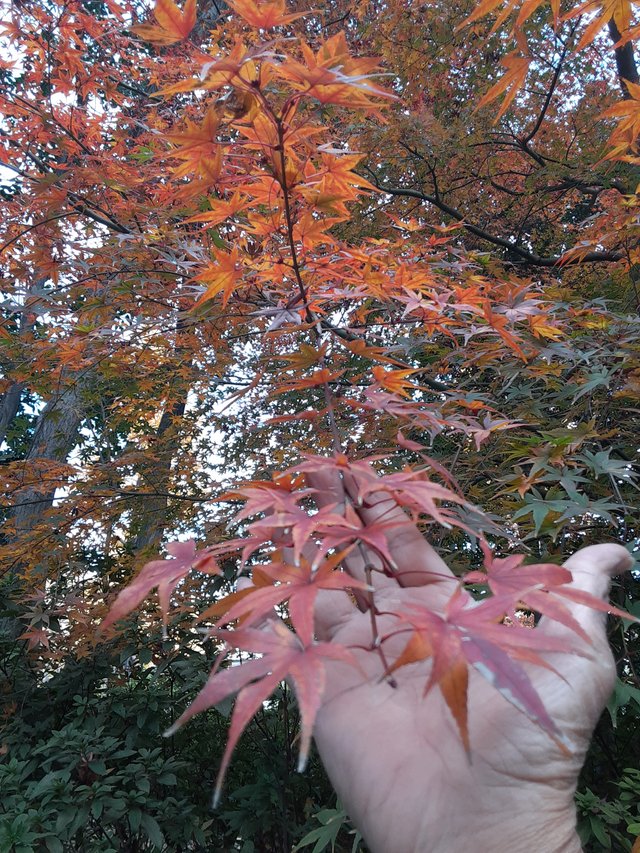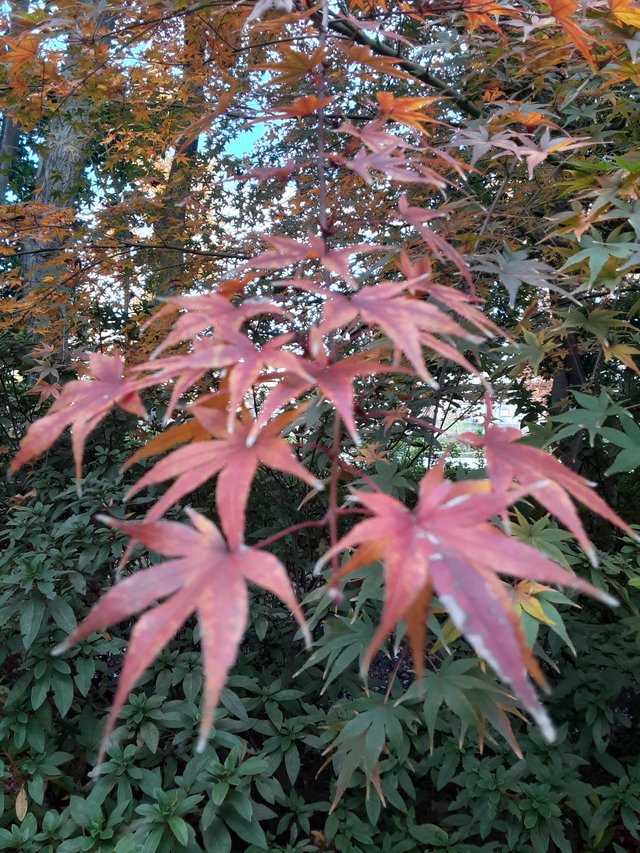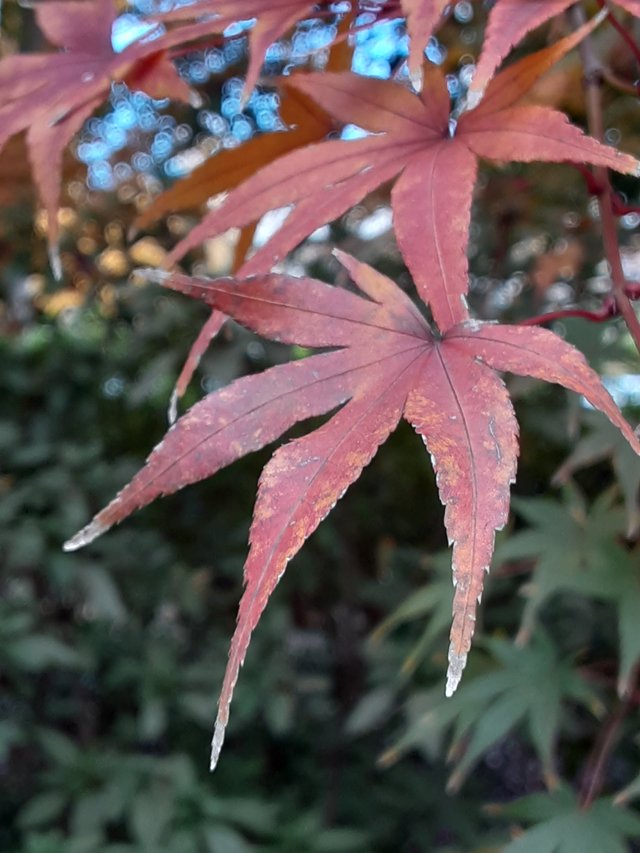
Acer palmatum, commonly known as the Japanese maple, is a deciduous tree native to Japan, Korea, and China. Renowned for its exquisite foliage, it is a popular ornamental tree, particularly prized for its stunning autumnal display.
In autumn, the leaves of the Japanese maple undergo a captivating transformation. The vibrant green hues of summer give way to a kaleidoscope of colors, including fiery reds, golden yellows, and deep oranges. The intensity and diversity of these colors vary depending on the specific cultivar and environmental conditions.

The leaves of the Japanese maple are typically palmately lobed, resembling a human hand with five or seven pointed fingers. The intricate patterns and delicate veins of the leaves contribute to their aesthetic appeal. As autumn progresses, the chlorophyll within the leaves breaks down, revealing the underlying pigments that create the breathtaking autumnal hues.
The Japanese maple's autumnal beauty is influenced by several factors. Temperature, sunlight exposure, and soil moisture play significant roles in determining the intensity and duration of the color display. Cooler temperatures and ample sunlight tend to produce the most vibrant colors. Additionally, the specific cultivar of the tree can influence the range of colors exhibited.

The Japanese maple's autumnal foliage has captivated people for centuries. Its elegant form and vibrant colors make it a beloved ornamental tree in gardens and landscapes worldwide. Whether admired in a solitary specimen or as part of a group planting, the Japanese maple offers a stunning visual spectacle that heralds the arrival of autumn.
Ref.:
 |  |
The leaves of the tree look much more beautiful
Downvoting a post can decrease pending rewards and make it less visible. Common reasons:
Submit
Upvoted! Thank you for supporting witness @jswit.
Downvoting a post can decrease pending rewards and make it less visible. Common reasons:
Submit